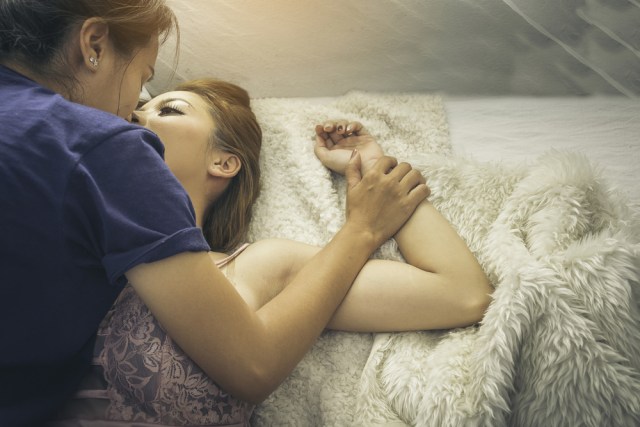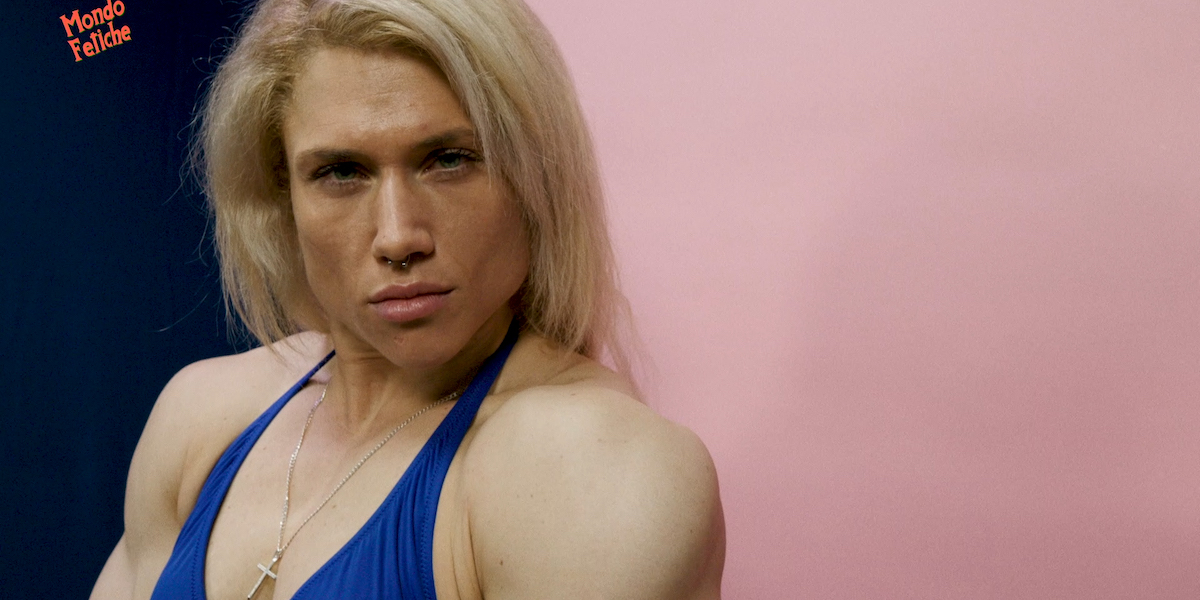All of the photographs in this NSFW Sunday are from Shutterstock. The inclusion of a visual here should not be interpreted as an assertion of the model’s gender identity or sexual orientation. If you’re a photographer or model and think your work would be a good fit for NSFW Sunday, please email carolyn at autostraddle dot com.
Welcome to NSFW Sunday!

Looking back on 2017, we can count the ups, the downs, the other downs, just a whole lot of downs really, and yes, the greatest hits of things that don’t belong in vaginas. Don’t exfoliate the inside of a vagina, don’t use vaginal highlighter, don’t use vaginal glitter, and definitely definitely don’t use wasps’ nests.
PrEP, a daily drug that can prevent HIV infection, is only useful if everyone can access it.
At Oh Joy Sex Toy, Rica March has an introduction to being a non-binary bisexual.
What period sex team are you and/or your partners on?
Here’s how to keep your online sex life private.

Researchers learned a lot about single people this year: we’re demographically more powerful. We’re having more sex. Living alone is definitely a thing. Marriage isn’t a key marker of adulthood anymore – and, contrary to popular belief and according to one study, it doesn’t mean better health:
“With just one exception, every significant finding favored the women who either stayed single instead of marrying, or who got divorced instead of staying married. For example, the women who married gained more weight and drank more than those who stayed single. The women who divorced ate healthier, exercised more, and had smaller waists than the women who stayed married. (The one exception was that the women who divorced were more likely to start smoking than the women who stayed married.)”

When drinking is seen as “I am fun, I am participating,” what is dating like when you don’t really drink? At the Cut, Rainesford Stauffer writes:
“Statistically, excessiveness isn’t “a thing” anymore when it comes toyoung people and alcohol – research shows that that millennials as a group drink less than either Gen Xers or Baby Boomers – but socially, it’s another story. I never announce I don’t drink, but I don’t make an effort to cover it up, either. I’m good with whatever decision I make. The bizarre part is that other people aren’t. If I had a dollar for every time someone told me I was “lagging behind” or asked why I wasn’t drinking, I could buy a round for the whole Twitterverse. It used to plunge me into social discomfort; a couple times, I ended up drinking more than I wanted to, just to prove a point.
But the whole thing is pretty lopsided: If I comment that someone seems to be drinking too much, I’m judgmental, or a prude. But my not drinking is fair game for critique. I’ve never heard a friend apologize or make an excuse for their drinking habits. So, I wondered, why am I?”

A new sex ed program testing in Los Angeles, in the United States’s second-largest school district, addresses puberty, uses gender-neutral names in relationship examples, and talks about the consequences of gender stereotypes beginning in fourth grade instead of the usual fifth grade:
“David Bell, associate professor of population and family health at Columbia University Medical Center and medical director of the family planning program there, noted a 2015 study in International Perspectives on Sexual and Reproductive Health that found that sexual education curriculums addressing gender and power dynamics resulted in significant decreases in STIs and pregnancy in students, as well as positive effects on students’ social attitudes and behavior. ‘If we are to have any hope of better relationships and gender roles… less gender-based violence,’ Bell said, ‘we need to have these conversations as early as possible.’”







